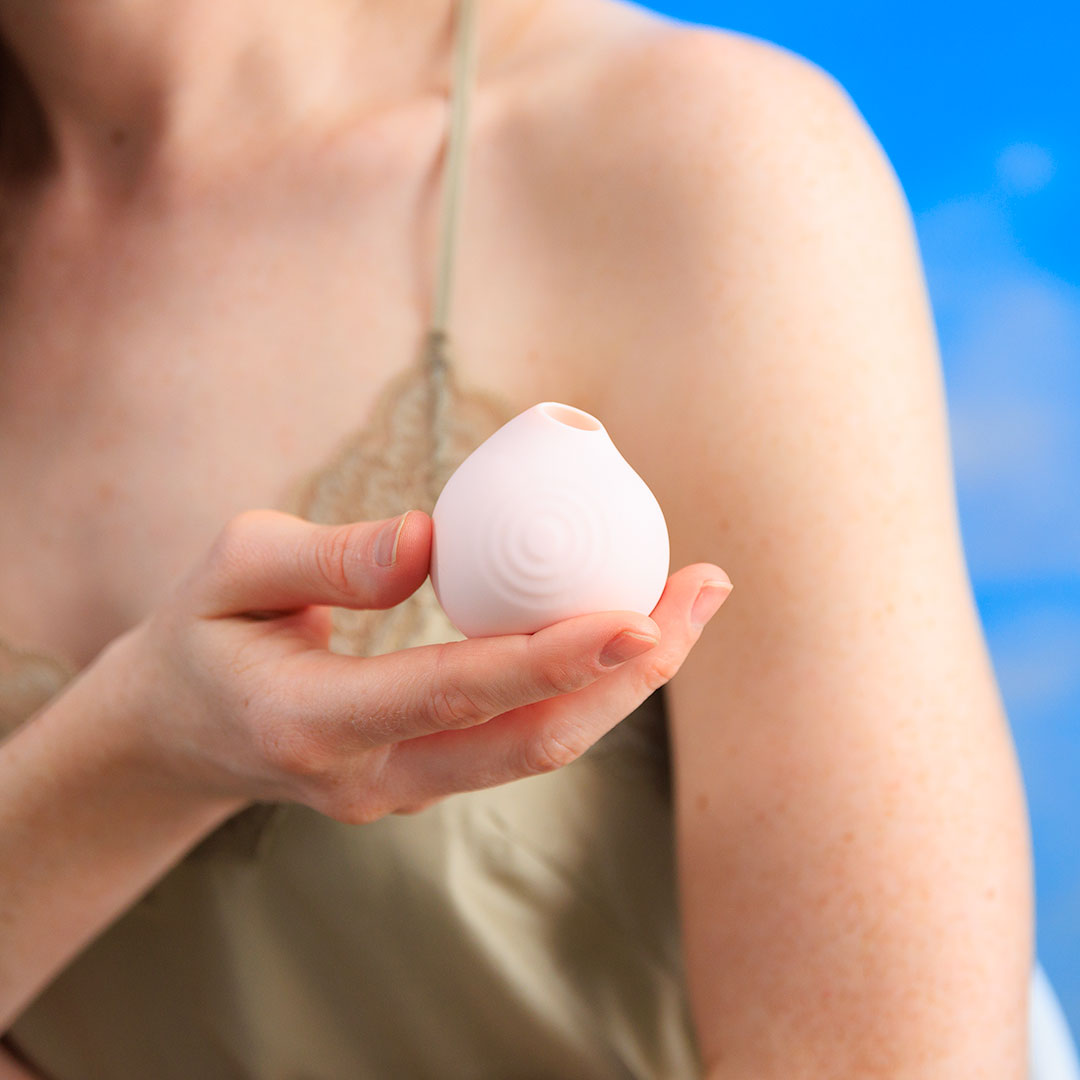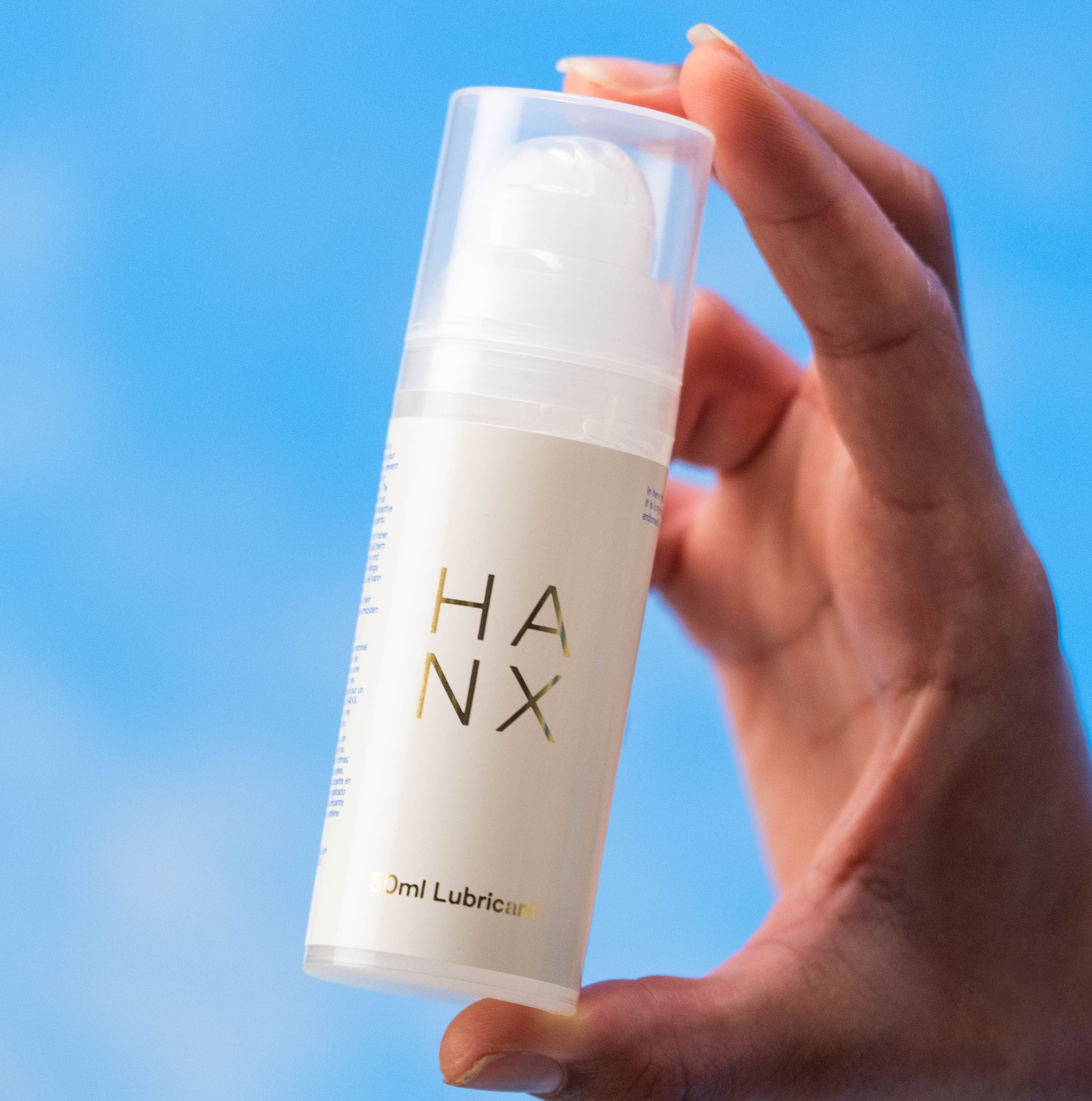How To Date When Vaginismus Makes Sex Painful
Spotted the ‘v’ word hitting headlines this week? Singer Meghan Trainor recently spoke up about experiencing painful sex on her podcast, Workin’ On It. When discussing difficulties having penetrative sex since giving birth, she shared:
“I was told I have something called vaginismus. I thought that every woman walking around was always in pain during and after sex. I was like, ‘Doc, are you telling me that I could have sex and not feel a single bit of pain?’”
It’s a tough listen even if you haven’t experienced vaginismus, as Trainor details ‘having to ice’ her vagina afterwards, and even finding walking painful. However, the majority of media (and social media) responses were less sympathetic, instead congratulating her husband for having a supposedly gigantic penis. In a word: ‘yuck’. Sadly, misogynistic ideas really do perpetuate the idea that if you experience vaginal pain during/after penetration, your partner/s should be celebrated. Side note: as for penis size and pleasure - we’ve done a deep dive into that before.
Let's Open Up
Vaginismus is on our minds. On Valentine’s Day, we launched our campaign, Let’s Open Up, designed to tackle the stigma around the condition. We heard your own stories of being dismissed by GPs, misunderstood by partners or even encouraged to ‘have a glass of wine and push through the pain’. Meghan Trainor isn’t alone in being shamed for talking openly about vaginismus, but whilst the online chatter around Trainor’s husband’s ‘fire’ sex game was frustrating, it’s also heartening to see an upswell of commentary deriding this attitude towards a more-common-than-you-think condition affecting sex lives all over the world. In fact, the likelihood is that if you’re not experiencing it yourself, you know someone who is. 1 in 10 people with vaginas do, and it can happen in your teen years, plus all the way up to post-menopause. However, shame and silence around vaginismus mean that people don’t understand why it can have such a negative impact on your life. One case in point: it can make speaking to a hot date or a partner about the condition feel tricky or embarassing.
What is Vaginismus?
First up, let’s be clear about what vaginismus actually is. Vaginismus is where the muscles of the vagina muscles tighten suddenly when something (a finger, dilator, penis, sex toy or even a tampon) attempts to enter it. It’s commonly caused by conscious or subconscious worries about sex or penetration and rarely is caused by external physical factors. This probably doesn’t sound reassuring, especially if you’ve been told ‘it’s all in your head’. You’re not alone, though - in her time as an NHS GP and working in sexual health clinics, our Co-Founder Dr Sarah Welsh saw many people who were very distressed about vaginismus' impact. Although exact figures are unknown due to many people suffering without talking to their doctor, it’s thought to be one of the most common psychosexual conditions.
What causes vaginismus?
The cause of vaginismus varies for each individual, and whilst often it’s caused due to past negative sexual experiences, or worries about sex, some vaginismus sufferers find that there is no direct cause. You might find that it doesn’t correlate to your desire for sex, either. In Netflix hit series Sex Education, the character Lily find that during her fifirst time attempting penetrative vaginal sex, she experiences vaginismus. She poignantly describes this feeling as her body ‘betraying’ her - something many people can relate to if they have a healthy sex drive. It can also appear even if you have had no issues with penetration previously, and some report developing vaginismus as a result of menopause. This brings us onto a key concern for many: can you still have a fulfilling sex life when you have vaginismus?
So, how do I date with vaginismus?
When you’re used to the most awkward part of a date being attempting to recognise your potential beau from an artfully angled and outdated selfie, getting real about difficulties having sex can be very intimidating. Whether you’re swiping up a storm on the apps, casually seeing a few folk or enjoying play parties, it can feel tough to be upfront and explain that you can’t have sex as they might expect. We know from open conversation with friends, partners and the brilliant team at Leith, who have personal experience of the condition and helped us put vaginismus onto billboards around the UK, that ‘the chat’ really can be awkward. Opening up about sexual difficulties can really challenge your sense of self as a sexual being - especially if you’ve never had any hitches in the bedroom before.
If you’re keen to explore penetrative sex whilst navigating vaginismus, there are a few ways to make it easier:
- Communicate. Whether you’re hooking up with a same-day Pure app match or a long-term FWB, communication is key, so be as open as you are comfortable with. You can add it to your dating profile, or bring it up over a drink on your first meet up - wherever feels safe and right for you.
- Break it down. Vaginismus can be hard to explain, so try using an analogy that they'll be able to relate to. Something like ‘if I pointed a finger towards your eye, you’d automatically blink to protect yourself. Something similar can happen to my body when I try to have sex.'
- Consent continues. If things get saucier, remember that consent is ongoing throughout the whole experience. If anything is painful or uncomfortable, advocate for yourself, let them know that that position/act is painful and don’t be afraid to switch things up mid-way if it begins to hurt.
- Take it slow. Tying in with communication, make sure you take your time if you’re attempting penetrative sex. Ensuring you’re fully aroused can really help to make it an enjoyable experience, and build up the intimacy and trust to help your muscles relax.
- Lube it up. Whenever you’re putting something into your vagina, whether it’s a finger, penis, toy or dilator, lube is key to helping make it a smooth, seamless experience. Look for a formula that’s as natural as possible without tingling gels, which can cause irritation or burning (not ideal if you’re already anxious about vaginal pain) or glycerine, which can cause yeast infections.
-
Expand your sexual repertoire. Look beyond the wizard’s sleeve and challenge your ideas of what a hookup can be. Explore your erogenous zones (some people can orgasm from nipple play alone!), watch porn together and indulge in mutual masturbation, or try a little imaginative role play. The Vaginismus Network has some great ideas to get you started.
- Think beyond climax. There’s a great deal of pressure to reach orgasm, both from ourselves and external influences, but cumming isn’t the be-all-and-end-all of sex. You might find that focusing on pleasure without the pursuit of orgasm helps you to relax more and simply enjoy. Focus on sensations, breath work and being present.
- Remember: the hole isn’t the goal. Pleasure is. There is no inherent need to have penetrative sex just because you’re dating. There are plenty of ways to get off without getting it in. Over to our good friend, the clitoris. Clitoral stimulation is very popular as a means of reaching orgasms more generally - in fact, a study by The Journal of Sex and Marital Therapy showed over 37% of American women prefer it to penetrative sex. Jilling off, flicking the bean or playing with yourself, however you put it, clitoral stimulation is a reliable and really fun way to achieve pleasure without pain.
Above all, talking about vaginismus really can be helpful. The Vaginismus Network’s community shares many nuanced experiences and is a great resource to learn, support and even laugh about the condition.
Finally, Meghan Trainor concluded her podcast by saying she’s going to “figure it out” and “become a star at sex”. Keep that optimism, be kind to yourself and know that if someone you’re having sex with isn’t supportive or willing to work with you to ensure penetration is pleasurable for you both, they’re not worth you - or your vagina’s - time.
Want more on vaginismus?
- We created a free digital hub in partnership with the wonderful team at Leith to open up about vaginismus. Find out more.
- Using a dilator? Try our natural, gynae-designed lube here.






















